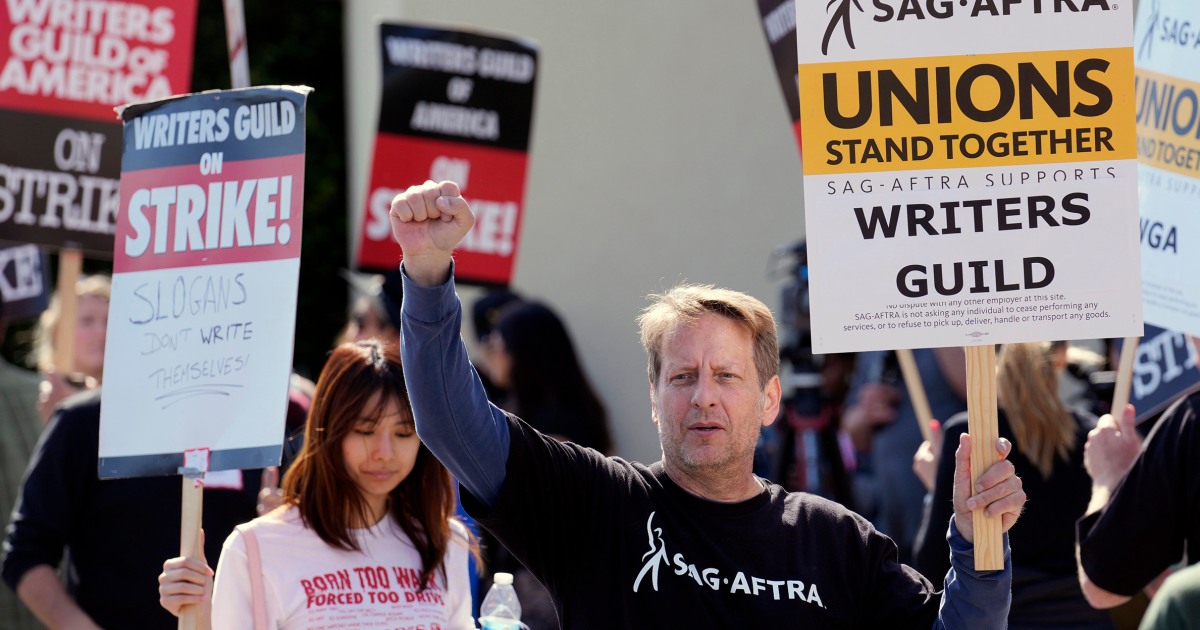SAG-AFTRA announced Wednesday that it will hold a strike authorization vote as it seeks to have its «ducks in a row» ahead of June 7 negotiations with major studios.
The vote does not mean the artists’ union will necessarily join the Writers Guild of America on the pickets after its contract expires on June 30. leverage” for conversations.
“We must put all our ducks in a row if the need arises,” SAG-AFTRA President Fran Drescher said in the statement. “The prospect of a strike is not a first option, but a last resort. As my dad always says, ‘It’s better to have and not need than to need and not have!’”
The Alliance of Motion Picture and Television Producers, which represents the studios, declined to comment.
In 2017, the artists’ union threatened to call a vote to authorize the strike as talks neared a deadline. At the time, the union said the AMPTP was looking for “shocking setbacks”. The two parties finally reached an agreement without the guild having to call a vote.
SAG-AFTRA also obtained a strike authorization during the 2018 animation contract negotiations. In that case, more than 98% of voting members approved the authorization and the parties reached an agreement two months later.
This time, there will be only three weeks between the start of negotiations and the expiration of the contract on June 30. Taking a strike authorization vote can now be a way to gain influence without spending time at the negotiating table.
Drescher appeared on the WGA picket lines and voiced his support for the writers’ strike, which began on May 2. But it sparked controversy among some of its members last week when she suggested, to Deadline, that SAG-AFTRA and WGA have different problems.
“I don’t think what’s very important to writers, and I’m also a writer at the WGA, is the kind of thing that we’re looking for,” Drescher said. “Although I have a lot of empathy for their needs, I feel like our conversation is going to be very different. And I’m very hopeful that we may not get to this point.»
SAG-AFTRA is looking at some of the issues that have been important to writers, including pay increases to address inflation, increased residual flow and protections against artificial intelligence. The union is also seeking to address the move to «self-recorded» auditions, which many artists find costly and onerous.
In the statement, the union said that given the variety of issues, «the outlook for working actors becomes untenable without transformative change.»
SAG-AFTRA represents 160,000 artists.

